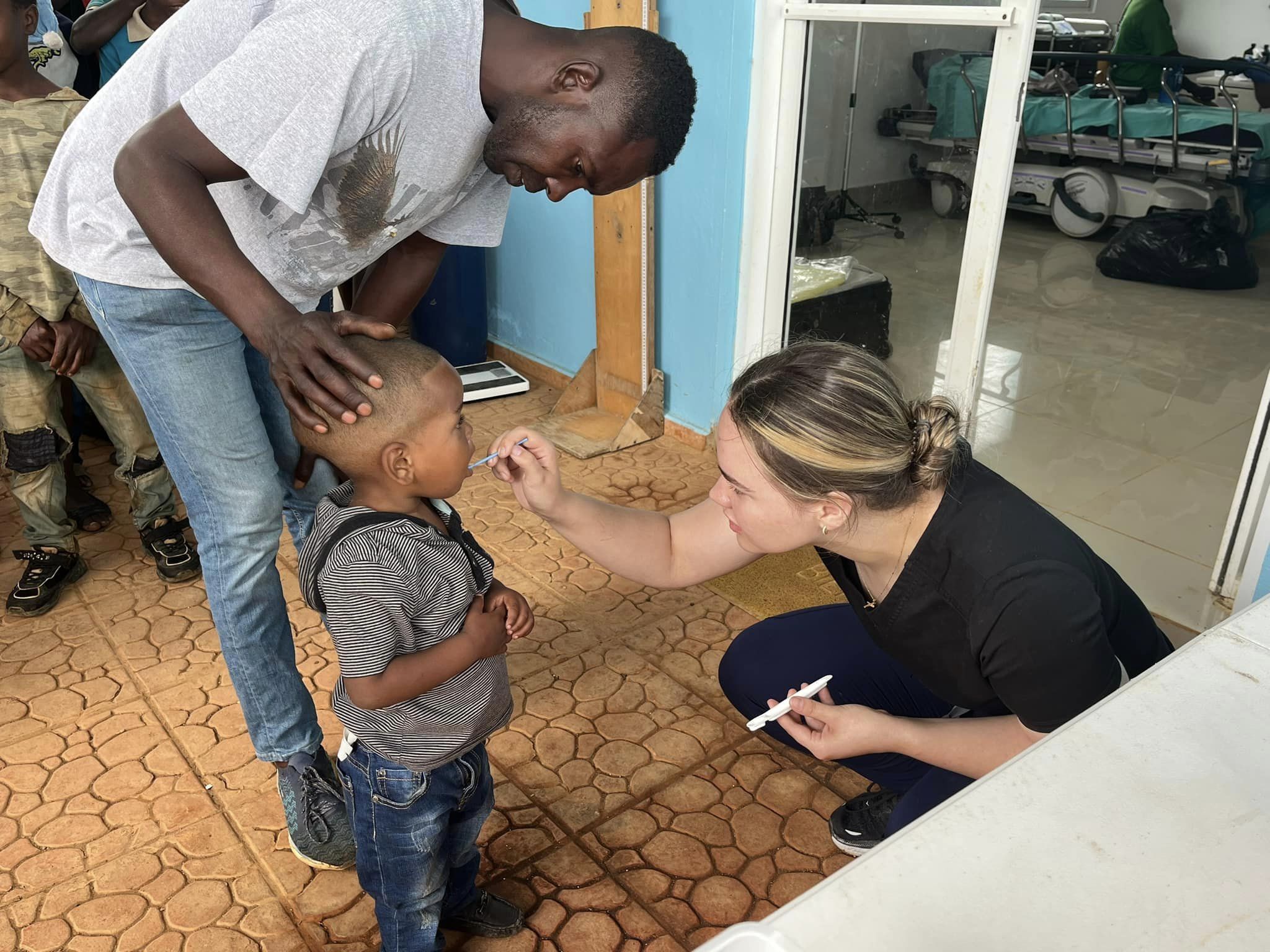
University of Saint Francis Professor Dr. Amy Obringer’s annual trip to Haiti (temporarily shifted to just over the border and into the Dominican Republic for safety reasons) provides healthcare-minded students with both hands-on medical experience and the opportunity to witness the obstacles that people in these villages face, especially in terms of medical and veterinary care.
The team, which spent May 12 to 17 in the Dominican Republic, included pre-med students, pre-physician assistant students, pre-veterinarian students, a pre-dental student and a psychology student. This year’s team included Saint Francis students Katie Grable, Dahiro Omar, Greg Hope and Ti’anah Stuff-Kelso from Fort Wayne, Telsa Rodenbeck from Churubusco, Carly Turner from Kendallville, Emma Dellinger from Harlan, Madyson Raderstorf from Logansport and Mackenzie Leeth from Convoy, Ohio.
The trip also included Decatur’s Dr. Kate Heimann of Adams Memorial Hospital and Saint Francis alumna Olivia Obringer (BS ’21), who is a fourth-year veterinary student at Michigan State University. Saind Francis alumnus Dr. Nate James (BS ’12) of the Parkview Emergency Department, Dr. Paula Johnson (Purdue veterinarian), and Dr. Floyd Williams (IndyVet Emergency and Specialty Hospital) completed the team.
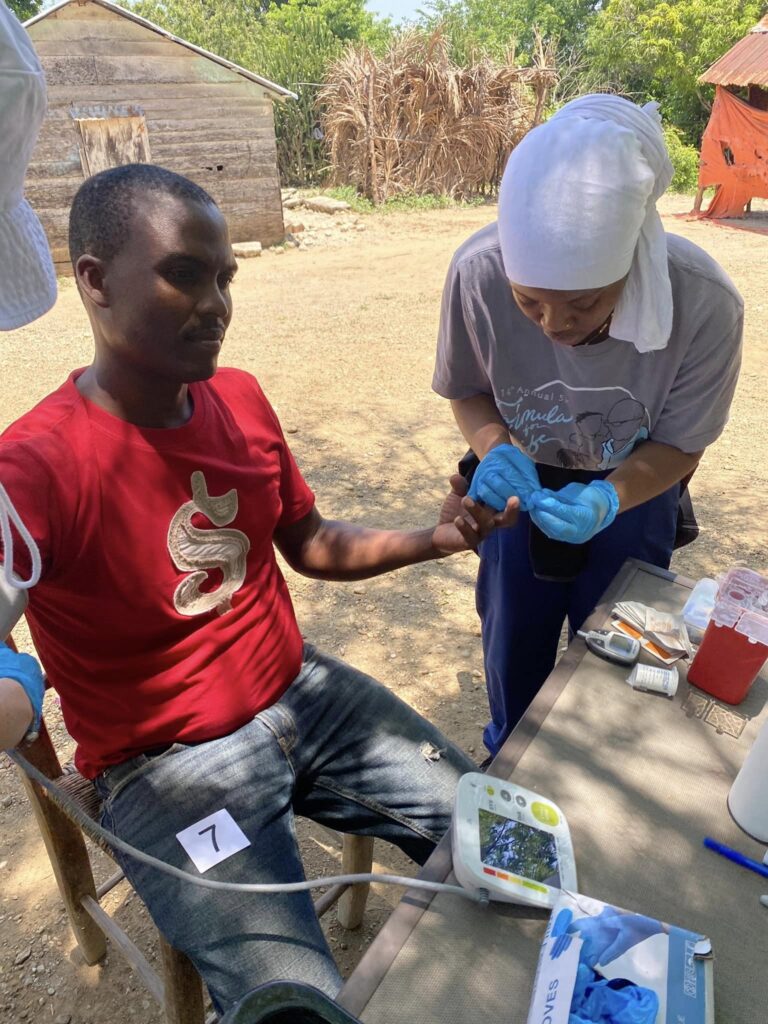
Utilizing local Dominican drivers and translators, the group travelled to remote mountain villages in the Elias Pina area. They conducted home visits to the elderly and disabled and set up mobile clinics in churches. Dr. Heimann and Dr. James provided care for 133 patients in four days. The patients included both Dominicans and Haitians and conditions such as pregnancy checks, high blood pressure, infected wounds, intestinal parasites and malnutrition. Dr. Heimann was limited in labs she could order, having only the very basics available, such as fingerstick blood glucose and urinalysis via a test strip. Thanks to a generous donation, the group purchased a fetal doppler, which Dr. Heimann used several times to listen to an unborn baby’s heartbeat.
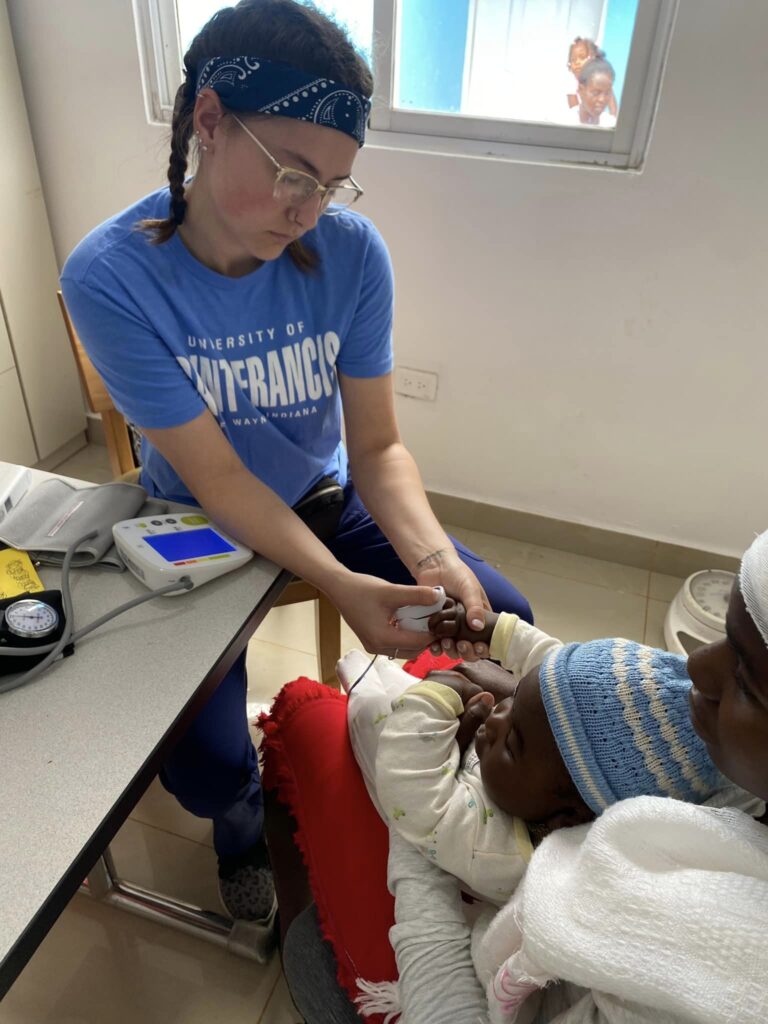
Height and weight were measured on all children under the age of 5. Depending on their nutritional status (good, poor or severe) they were provided peanut butter and rice meals (Project 216 in Fort Wayne). Two severely malnourished children were transported down the mountain to a nutritional clinic operated by the Catholic sisters of the order Missionaries of Charity. They will return to their families once their health is stable.
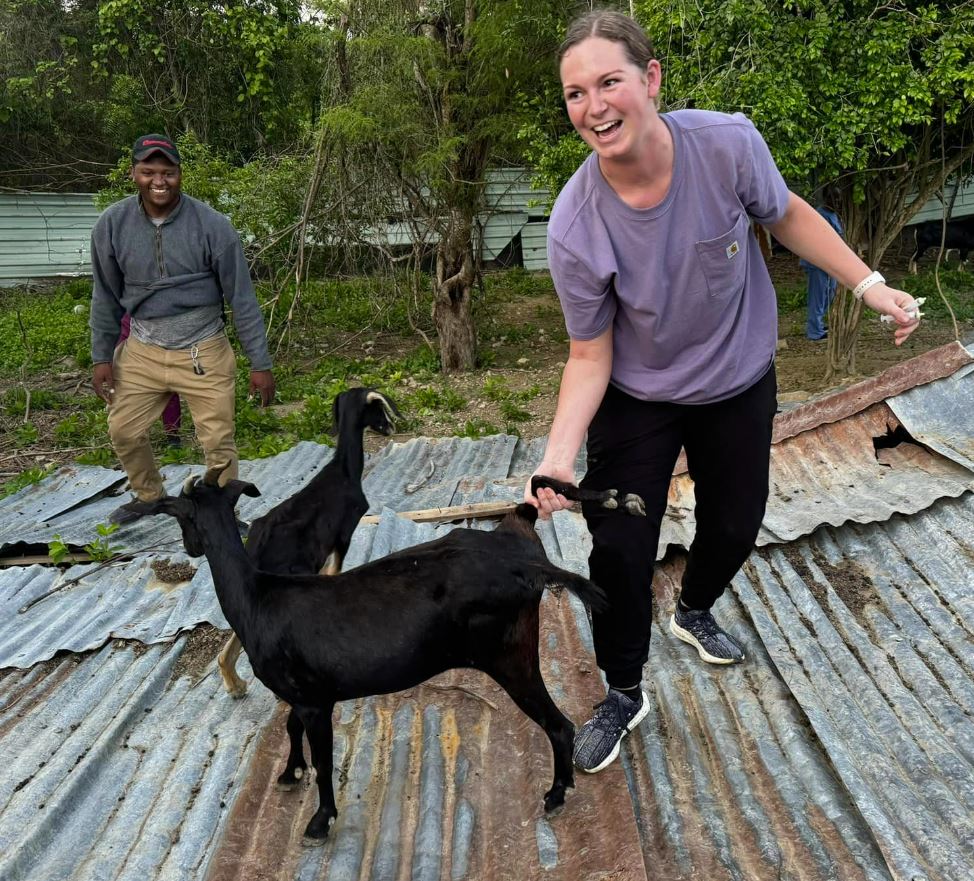
Along with two veterinarians and one pre-vet student, the team treated 231 patients (68 dogs, 64 goats, 44 bulls, 19 horses, 18 pigs, 11 donkeys and seven cats). They administered dewormer, rabies vaccines and flea/tick preventative. Intestinal worms can dramatically influence the nutritional status of the animals. This is particularly important when the animals are being raised for human consumption. Neuters and spays were offered for the dogs and cats. They also tested dogs and cats for diseases such as Giardia and Parvovirus. They applied spray to horse wounds to minimize flies and repaired a dog’s muzzle that had been sliced full thickness by a machete.
The University of Saint Francis students were responsible for collecting vitals at check-in, running all labs, applying fluoride, dispensing medications and nutritional supplements, conducting a breast cancer survey, and assisting both the physicians and veterinarians in whatever they needed. According to Saint Francis professor Dr. Obringer, this course offers a unique opportunity for undergraduate students. Not only is the trip very eye-opening and rewarding for the students, but it offers many teachable moments for the students as they work closely alongside the healthcare providers.
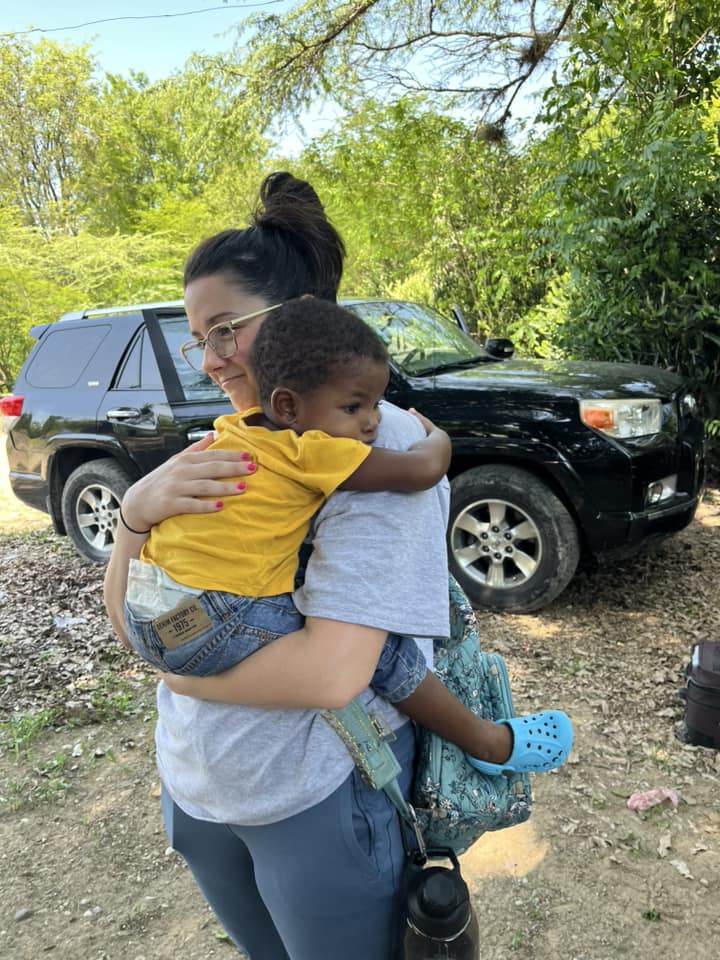
To learn more about this trip, including ways to help, contact Dr. Amy Obringer via email at aobringer@sf.edu.